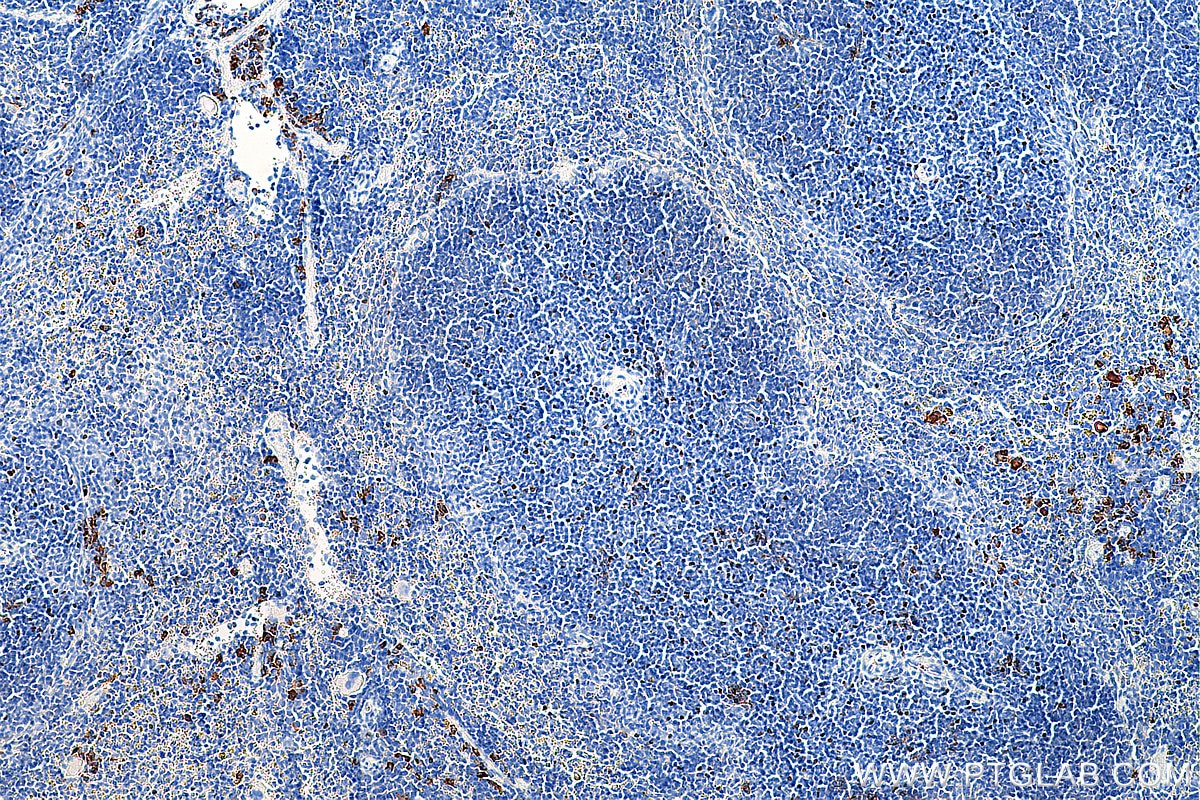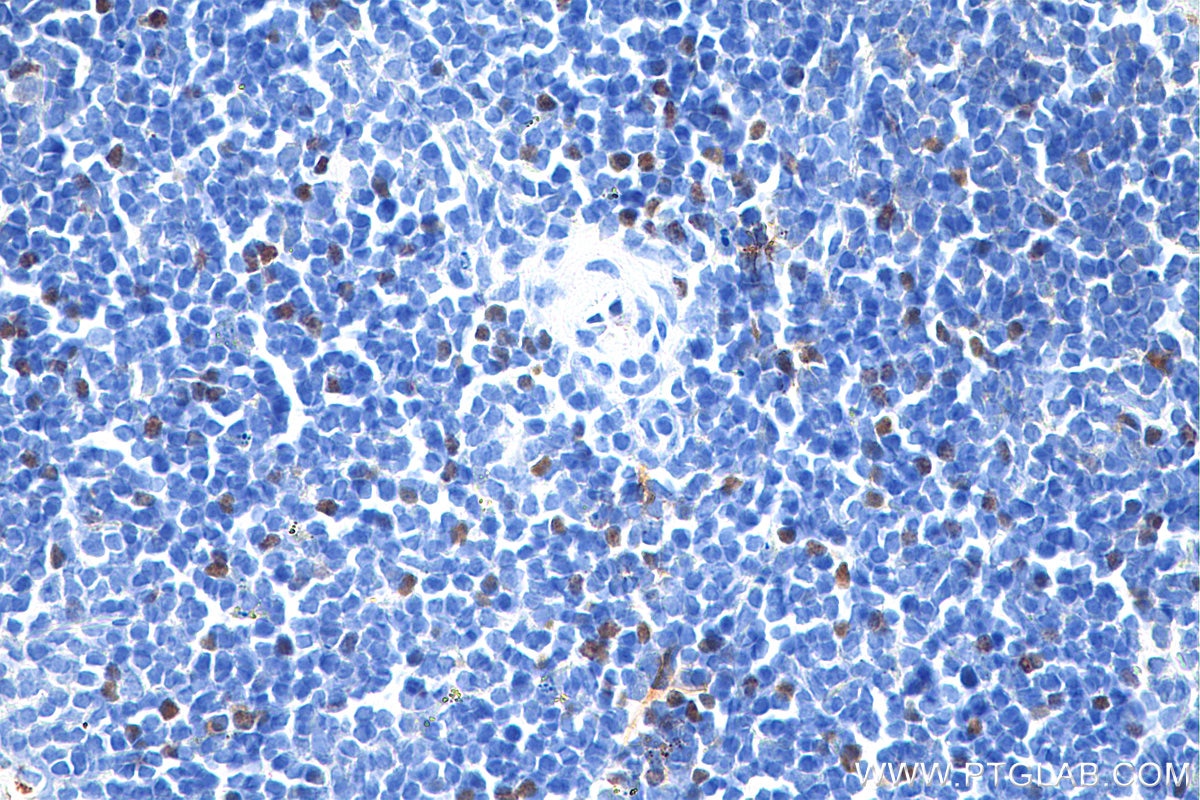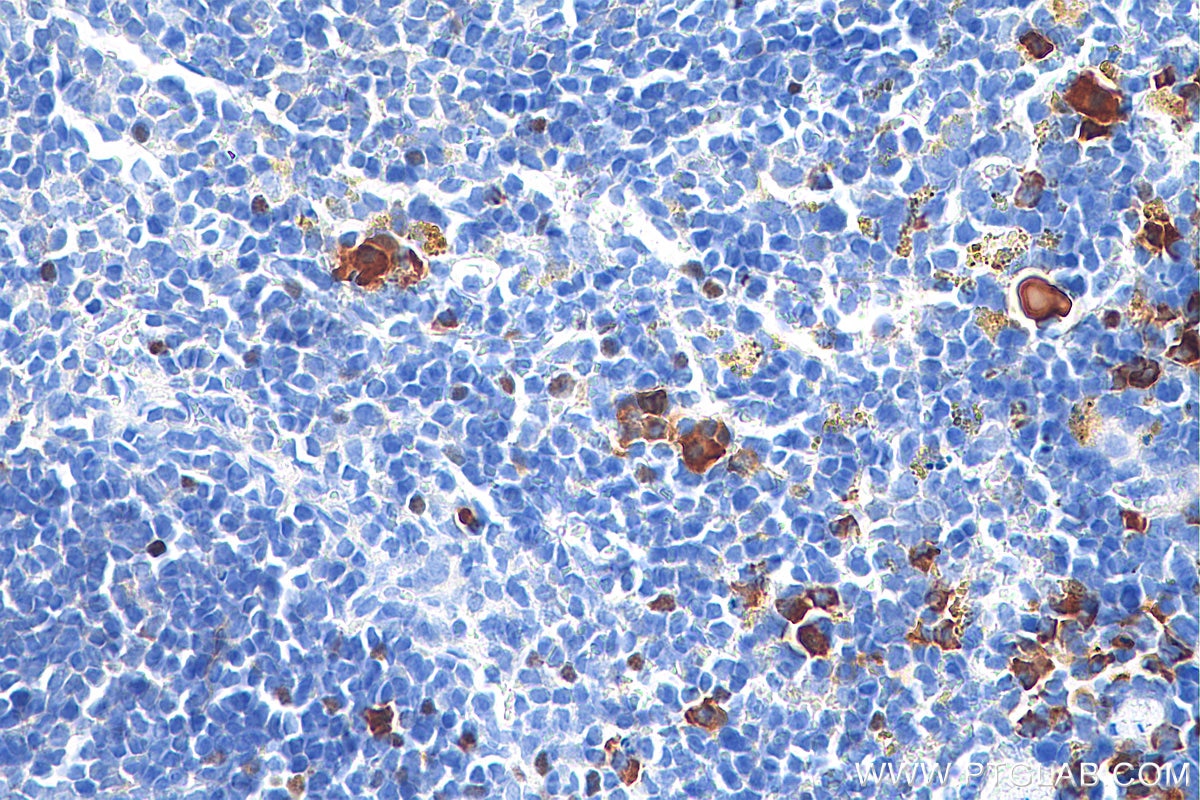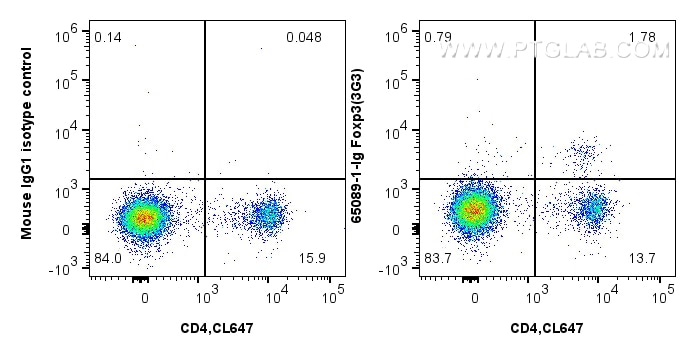Anticorps Monoclonal anti-Foxp3
Foxp3 Monoclonal Antibody for IHC, FC (Intra)
Hôte / Isotype
Mouse / IgG1, kappa
Réactivité testée
souris
Applications
IHC, IF, FC (Intra)
Conjugaison
Non conjugué
CloneNo.
3G3
N° de cat : 65089-1-Ig
Synonymes
Galerie de données de validation
Applications testées
| Résultats positifs en IHC | tissu splénique de souris, il est suggéré de démasquer l'antigène avec un tampon de TE buffer pH 9.0; (*) À défaut, 'le démasquage de l'antigène peut être 'effectué avec un tampon citrate pH 6,0. |
| Résultats positifs en FC (Intra) | splénocytes de souris |
| Résultats positifs en cytométrie | splénocytes de souris |
Dilution recommandée
| Application | Dilution |
|---|---|
| Immunohistochimie (IHC) | IHC : 1:50-1:500 |
| This reagent has been tested for flow cytometric analysis. It is recommended that this reagent should be titrated in each testing system to obtain optimal results. | |
| Sample-dependent, check data in validation data gallery | |
Applications publiées
| IHC | See 2 publications below |
| IF | See 6 publications below |
Informations sur le produit
65089-1-Ig cible Foxp3 dans les applications de IHC, IF, FC (Intra) et montre une réactivité avec des échantillons souris
| Réactivité | souris |
| Réactivité citée | souris |
| Hôte / Isotype | Mouse / IgG1, kappa |
| Clonalité | Monoclonal |
| Type | Anticorps |
| Immunogène | s/o |
| Nom complet | forkhead box P3 |
| Numéro d’acquisition GenBank | BC132333 |
| Symbole du gène | Foxp3 |
| Identification du gène (NCBI) | 20371 |
| Conjugaison | Non conjugué |
| Forme | Liquide |
| Méthode de purification | Purification par affinité |
| Tampon de stockage | PBS with 0.09% sodium azide |
| Conditions de stockage | Store at 2-8°C. Stable for one year after shipment. |
Informations générales
Foxp3 (forkhead box P3), also named as IPEX, JM2 and scurfin, is a member of the forkhead transcription factor family and is essential for normal immune homeostasis (PMID: 11138001; 20429413). Foxp3 is specifically expressed in CD4+ CD25+ regulatory T cells and is crucial for their development and suppressive activity (PMID: 12612578; 12612581). In scurfy mouse, disruption of Foxp3 results in the fatal lymphoproliferative disorder attributed to the lack of an immune-suppressive component in the immune system (PMID: 25683611; 11138001). Similar to mice, genetic defects in human Foxp3 are the cause of immunodeficiency polyendocrinopathy, enteropathy, X-linked syndrome (IPEX) which also known as X-linked autoimmunity-immunodeficiency syndrome (PMID: 11137993).
Protocole
| Product Specific Protocols | |
|---|---|
| IHC protocol for Foxp3 antibody 65089-1-Ig | Download protocol |
| FC protocol for Foxp3 antibody 65089-1-Ig | Download protocol |
| Standard Protocols | |
|---|---|
| Click here to view our Standard Protocols |
Publications
| Species | Application | Title |
|---|---|---|
Adv Sci (Weinh) Targeting L-Selectin Lymphocytes to Deliver Immunosuppressive Drug in Lymph Nodes for Durable Multiple Sclerosis Treatment | ||
Thorac Cancer Adiponectin-expressing Treg-containing T cell fraction inhibits tumor growth in orthotopically implanted triple-negative breast cancer | ||
Cell Rep FBXO38 mediates FGL1 ubiquitination and degradation to enhance cancer immunity and suppress inflammation | ||
Cell Commun Signal Tumorous IRE1α facilitates CD8+T cells-dependent anti-tumor immunity and improves immunotherapy efficacy in melanoma | ||
J Ethnopharmacol The extract from Quzhou Aurantii Fructus attenuates cough variant asthma through inhibiting the TRPV1/Ca2+/NFAT/TSLP pathway and ferroptosis via TRPV1 mediation in ovalbumin-induced mice |





